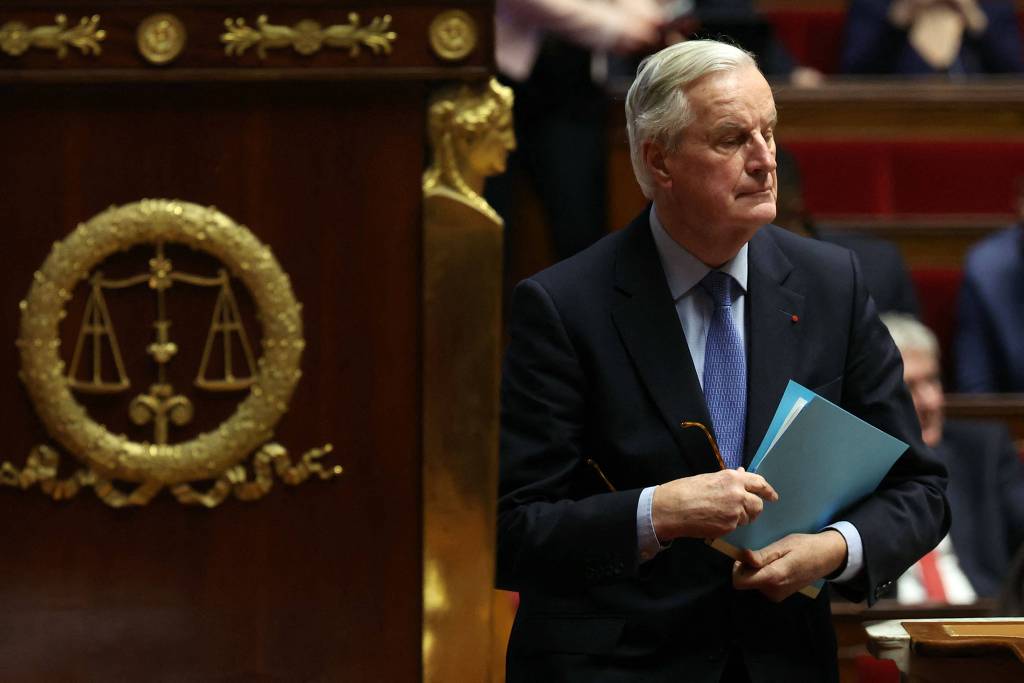
Published 12/05/2024 10:59 | Edited 12/05/2024 12:27
The Prime Minister of France, Michel Barnier, went this Thursday (5) to the Elysee presidential palace, in Paris, to deliver his letter of resignation to President Emmanuel Macron. The country’s Parliament approved this Wednesday (4) a motion of censure with 331 votes out of a possible 577, making Barnier the first prime minister overthrown by legislators in more than 60 years.
Barnier’s resignation should be made official in the next few hours. Macron’s speech is scheduled for 4pm Brasília time (8pm local time).
Barnier’s departure deepens political instability not only in France, but also in the European Union. In addition to the country, Germany, the bloc’s main power, must go through early elections after Olaf Scholz’s governing coalition collapses.
With Barnier’s fall, Macron must appoint a new prime minister. He is expected to move quickly to form a new government, especially as US President-elect Donald Trump is expected to arrive in Paris this weekend for the reopening of Notre Dame Cathedral.
Macron wants to avoid the embarrassment of a non-existent government moments before the inauguration of Trump’s new government, which must reshape the geopolitical chessboard, especially with regard to the conflict between Russia and Ukraine.
According to local press, Barnier and Macron met for more than an hour. This is the first French government to be defeated in a vote of no confidence since 1962, and Barnier becomes the prime minister with the shortest term in the country’s history — he began his term three months ago.
Barnier’s cabinet is now expected to act in an interim capacity until President Emmanuel Macron appoints new leadership. Macron appointed the prime minister to lead a minority government after a snap election that divided the French parliament.
In recent weeks, the left led by Jean-Luc Melénchon’s Unsubmissive France (LFI) signaled that it would not approve the 2025 budget proposed by Barnier and Macron. The proposal had a contractionary and fiscal austerity nature.
During parliamentary discussions, Barnier began to depend on the extreme right and Reunião Nacional (RN). A guarantor of Macron’s government, extremist leader Marine Le Pen realized his political protagonism and began acting to undermine the prime minister’s efforts. This week, Le Pen completely broke with macronism and voted with the LFI for the motion of censure.
The situation became untenable on Monday (2), when Barnier was forced to use a risky constitutional mechanism that bypassed a vote on the 2025 Budget.
Michel Barnier, a pragmatic and veteran politician, was placed in the post just three months ago by President Emmanuel Macron — in France, the prime minister governs alongside the president, who can either call elections to elect a prime minister or nominate a name outside the election.
The French went to the polls in June for parliamentary elections. The left-wing bloc won, blocking the favorite Réunion Nacional, from the extreme right, but failing to reach the majority needed to form a government.
Macron then decided to choose a center-right prime minister, in a decision that generated a wave of protests. The political impasse in France should throw not only the country but the entire European bloc into a serious economic and institutional crisis.
Source: vermelho.org.br

